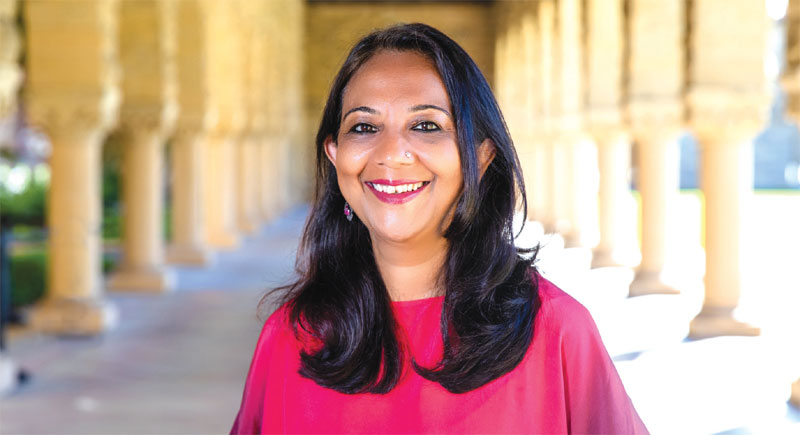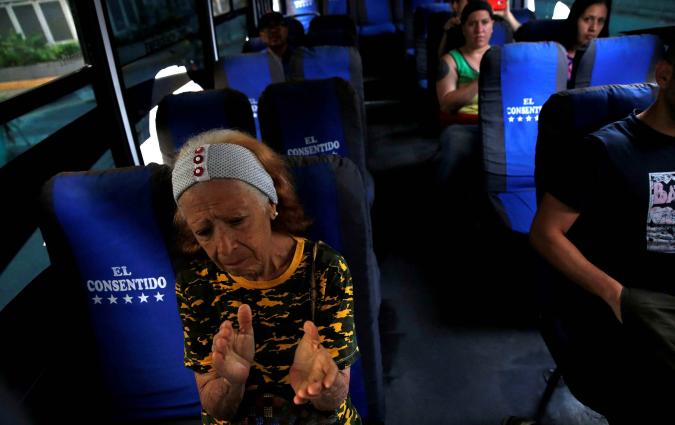“It won’t stop at Kashmir,” says a senior editor about a key news site being blocked

Anuradha Bhasin.
On Saturday 19 August independent news site The Kashmir Walla issued a statement saying the government of India had blocked its website. “We woke up to another deadly blow of finding access to our website and social media accounts blocked,” the newsroom said in a statement. “We have [also] been served an eviction notice by the landlord of our office in Srinagar and are in process of evicting.”
On 24 August, The Kashmir Walla was accessible in some parts of India. “That’s largely because of the pressure created by international media,” said a university professor in Kashmir, who requested anonymity as he fears retribution from the authorities.
When contacting its online server provider, the newsroom found out that the blocking had been ordered by India’s Ministry of Electronics and Information Technology under the 2000 Information Technology Act. The law was also used to block the news site’s accounts on Facebook and Twitter.
The law used against Kashmir Walla empowers the central government to order the blocking of any online content deemed against the interest of “India’s sovereignty and integrity, national security, defence, international relations, public order, or for preventing the incitement to commit a crime related to these grounds”. The law has been used against other outlets in the past.
Kashmir Walla started in 2009 as the personal blog of editor-in-chief Fahad Shah just as the internet was being introduced in the region.
It’s not the first time that the news site is punished by the Indian government. Its founding editor, Fahad Shah, was arrested in February 2022 on accusations of “glorifying terrorism” and “spreading fake news.” Since then, he has been summoned multiple times and he remains imprisoned 300 kilometres away from home.
In 2019, Indian Prime Minister Narendra Modi brought Kashmir under the direct control of the Indian government. Kashmir, which is India’s only Muslim majority region, has been in a 30-year long conflict with the Indian State and until then had enjoyed partial autonomy.
Modi flooded the streets with troops and blocked the internet for several months. Since then, the government has tried to control the news media in different ways, as I reported last year in this piece written from the region.
One of the most high-profile media managers in Kashmir is Anuradha Bhasin, the executive editor of the Kashmir Times, one of the oldest English dailies in the region.
Bhasin, who has just started a John S. Knight Fellowship at Stanford University, has spent her entire career at the Kashmir Times, where she began working as a trainee reporter. Her father, Ved Bhasin, who was a political activist and one of the most prominent journalists from the region, was the founder of the newspaper.
After the internet was blocked in Kashmir, Anuradha Bhasin knocked on the doors of the Supreme Court to seek a reversal of the ban. She won her case and the internet was partially restored in Kashmir.
I spoke to Bhasin to learn what she thinks about the latest developments, The Kashmir Walla’s blockage and the future of independent news media in the region. “It won’t stop in Kashmir,” she says. “It’s not just about Kashmiri people. It is also to instil fear among the rest of Indian media.”
Q. How would you describe The Kashmir Walla?
A. Fahad Shah started The Kashmir Walla in the early 2010s. They started doing detailed reporting on diverse issues. And it had some good reportage, as did some other newspapers, magazines, portals that came out around the same time. Some of them still exist on a much smaller scale.
The Kashmir Walla had a good readership because of Fahad’s personal profile. He was writing for different national and international publications and he had become a name. He was a very good reporter, and I think his own personal profile brought in more readers, especially influential readers.
After 2019, it became very difficult to do investigative journalism. This impacted everyone’s journalism. Very few news organisations held on professionally. The Kashmir Walla was one of them.
Today their reportage had been reduced in size and quality, but they were still managing to publish regularly. Most of their stories are just a compilation of different reports, some from news agencies and some from their old reporters. Their own journalists are sending in pieces which are sketchy at best. But the situation in Kashmir today is difficult and even those sketchy reports are a rarity.
Q. Why is The Kashmir Walla seen as a threat by the government despite not doing great reporting these days?
A. It is seen as a threat because the government policy is not just to silence any form of criticism but also to ensure that the only voice in the public domain is one that amplifies what they are saying.
Q. How is censorship in Kashmir different?
A. Most newspapers in Kashmir today are virtually amplifying the government’s propaganda. So organisations like The Kashmir Walla stand out differently in that environment.
It is happening all over India. But in Kashmir the attempt to control the media is at a different level. The government is not only wary that the journalists need to be silenced. Their interest is to ensure that there is no critical story at all. Their interest is to turn the media into a public relations vehicle of the government. Anything that doesn't fit into that picture will be targeted.
Q. Your own newspaper, Kashmir Times, has been a victim of this kind of censorship. What has your experience been like?
A. The Kashmir Times started publishing as a newspaper in 1954 and we had two editions for a long time, one from Jammu and one from Srinagar.
News organisations in our region have always gone through struggle. The armed conflict coupled with the government cracking down on the media was a tough situation. Censorship in Kashmir predates Modi, but it has been much more exacerbated after him.
In the last couple of decades, we were struggling, like all the other newspapers, for economic reasons. Digital media was taking over and growing, and the revenue model was pretty flawed because we depended on government advertising and other kinds of support. Every government controlled advertising.
After 2019, we scaled down our operations to one-tenth of what they were earlier. We did manage to continue almost without reporters, but this meant we didn't have exclusive reports. We didn't have some of the great articles or opinion pieces which had been our hallmark.
In Srinagar they shut our office, which was operating from a government building but no eviction notices were served. Government officials came with policemen and asked our staffers to move out. They put big padlocks on the doors and took away all our equipment. We were not in a position to restart a new office. So one of our two offices was gone.
It has been difficult for us. We continue to publish, technically. We compile news from the wires and other news reports. We don't have many reporters, but we have been managing to update our website daily and only when we have private ads do we bring out the print editions.
Q. Under such severe censorship, how do people access information on Kashmir?
A. There is some news trickling down, but it’s very rare.
For instance, recently there was a recent report in the Indian Express on drug abuse. There have been some stories in The Wire, Scroll, Article 14. International media would be even less interested in Kashmir.
Earlier, anybody interested in knowing about Kashmir would not rely on national newspapers and national outlets for basic information. They would look at regional content, and that regional content is now missing. Pick up any random Kashmiri newspaper and look at their content. All you see is the republishing of government press releases.
No one questions the statistics in these press releases. They claim to have got so much business investment. But no reporter has the guts to ask where this investment is, at which stages these projects are. There is no break up of these kinds of things.
Q. You have been a journalist in the region for a long time, and you have experienced censorship in more ways than one. What form of censorship took you by surprise more recently?
A. Today you have cases against people who were writing opinion columns years ago. Archives of Kashmir-based news publications also went suddenly missing last year. I never looked up my own website until someone told me websites of Kashmir-based newspapers were missing.
I quickly checked other websites and the archives prior to 2016 had mysteriously disappeared! I thought these websites had off-loaded their own material. I didn't even have the time to check my own because we work 24/7. [It had happened for Kashmir Times as well].
At the same time you are fire-fighting. Our office is sealed, there are income tax cases against us and so on and so forth.
Q. Where do you see journalism in Kashmir heading?
A. Nowhere. And that doesn’t even feel painful, it feels so numbing. Sometimes I miss feeling that pain that is so crucial to making you a human being.
It won’t stop at Kashmir though. I think it is not about Kashmir and showing Kashmiris their place and setting up a new level of threat and fear. It is also to instil fear among the rest of Indian news media.
The message is for all the journalists across India. As long as you are toeing the government’s line, you will be fine.
In every email we send you'll find original reporting, evidence-based insights, online seminars and readings curated from 100s of sources - all in 5 minutes.
- Twice a week
- More than 20,000 people receive it
- Unsubscribe any time







